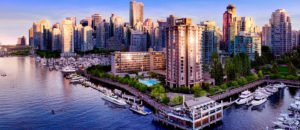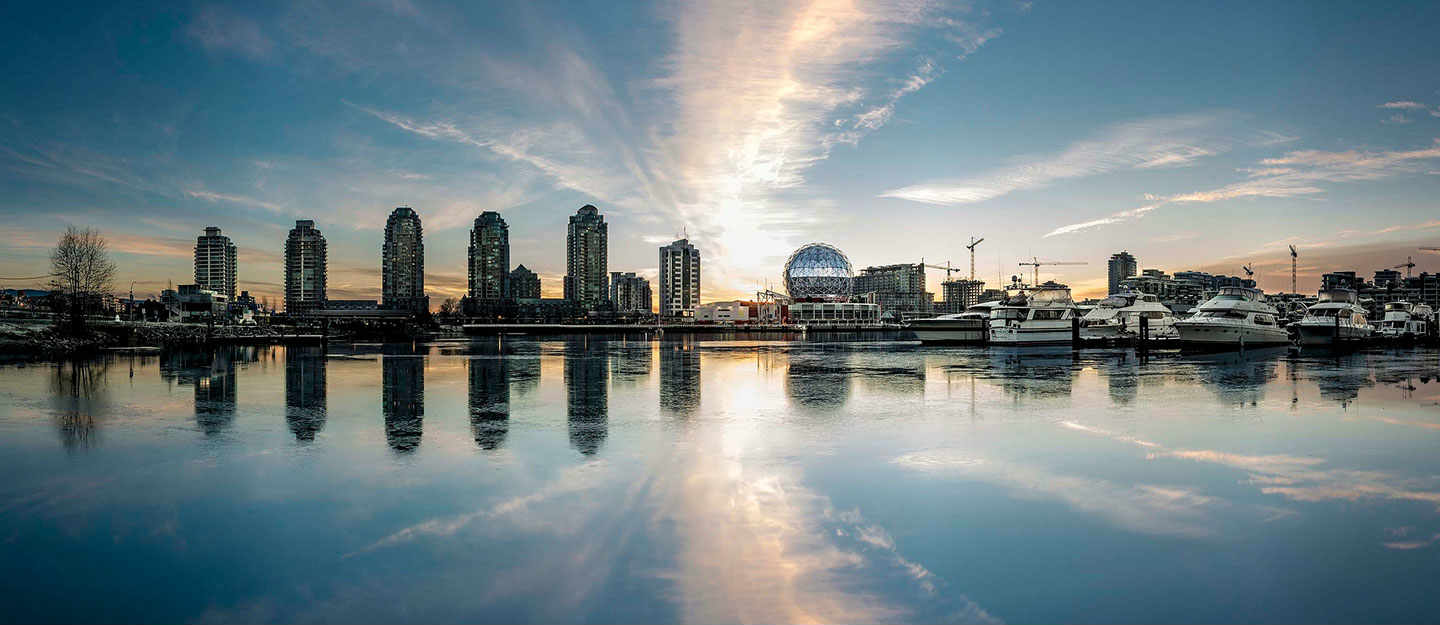After being ranked the 15th Best Startup Ecosystem in the World in 2017 & the best ecosystem in Canada, Vancouver is now seeing two major trends; one, bridging the gap in driving more investments in SMEs and creating more exits, IPOs and growth companies, and developing its sub-sectoral strengths in cleantech, gaming, health & lifesciences and blockchain
Although Vancouver runs neck-to-neck with Toronto in competing for a lead position among global startup ecosystems, the former has managed to grab the 15th rank in Startup Genome’s Global Startup Ecosystem Report 2017. What contributed to its success is of course a combination of geographic advantages, talent availability, connectivity & collaboration opportunities, a series of successful exits, IPOs and growth stories, and Government support in boosting the ecosystem.
Let’s look into some numbers. In 2017, according to Vancouver Economic Commission (VAC), the ecosystem was valued at US $9 billion, as against the global median of US $4.1 billion, and it hosts about 800 to 1,100 startups. Investments in the ecosystem touched US $327 million in 2017, across 62 deals, recording a four per cent increase from the previous year.
Evaluating Vancouver’s Startup Ecosystem
The ecosystem is built on several advantages, some of them being; better quality of life, vast global connectedness, a strong industrial base, enterprise data and cloud foundation, a diverse talent pool and more.
Although Vancouver is fraught with concerns pertaining to high cost of living and rising home prices, according to a study released by Mercer, a global consulting company, in 2017, the region ranked 5th in terms of quality of life, with two major contributing factors being, a stable political climate and positive social benefits. The rank was based on several criteria such as political, social & economic environment, medical & health considerations, public infrastructure & transportation, schools & education, and more.
In terms of global connectedness, Startup Genome indicates that the US and the UK are immediate targets for 64 per cent of the Vancouver-based startups that seek to target large innovation markets. Moreover, if we look at the region’s founder demographics, 30 per cent of them comprise immigrant founders, compared to a global average of 19 per cent. On the talent front, experienced software engineers in Vancouver is only marginally lesser, at 70 per cent, compared to the global average of 72 per cent, similar to the number of experienced growth employees, which stands at 59 per cent as compared to the global average of 60 per cent. A metric that stands out in the ecosystem is the visa success rate that stands at 66 per cent compared to the global average of 41 per cent. This partly explains why the percentage of immigrant founders in Vancouver stands at 31 per cent, compared to a global average of 19 per cent.

Gaps in the Market
There are three working areas for the ecosystem to rise up in ranks to become among the top ecosystems in the world; the need for more funding, recording a higher number of exits and valuations, and fostering more growth companies in the region.
But before we go into more details on this, it’s a must to mention that despite its drawbacks in these areas, Vancouver has still produced some successful exits and is home to a string of unicorn startups. Key exits the region has recorded are, the acquisition of Vancouver’s popular dating website, PlentyOfFish, by Match Group (Texas-based global dating platform) for US $575 million, Recon Instrument’s (smart glass & wearable displays company) acquisition by Intel for US $175 million, and TIO Networks’ (telecom, cable and wireless networks operator) acquisition by PayPal for US $233 million. And, Vancouver’s billion dollar babies include the likes of Hootsuite, Slack, Aviglion and more.
Addressing The Ecosystem’s Pitfalls
So, how is Vancouver addressing these gaps?
In terms of driving more investments into startups and nurturing growth in these ventures, the Government has introduced several initiatives, such as the US $100 million BC Tech Fund to enable tech companies to create jobs and diversify the economy. Similarly, there is the Vancouver Capital Attraction Initiative which is working to facilitate funding for local companies, and there are initiatives like IRAP (Industrial Research Assistance Program), which provide advisory, funding, networking & youth employment programs for companies to accelerate their growth, and SR&ED (Scientific Research & Experimental Development), which offers a federal tax incentive program to encourage Canadian businesses to do R&D in Canada.
In fact, to aid high-growth companies in Canada, the Government, as recently as in April 2017, rolled out a global talent policy, known as ‘Global Talent Stream’, to help Canadian employers, universities and research institutions attract high-skilled employees for short periods with no work permits required. The two-year, US $7.8 million pilot has been introduced to boost economic growth and foster more innovation in the ecosystem.
On the third front, institutions such as Simon Fraser University and University of British Columbia have introduced programs to foster innovation and entrepreneurship among students. For example, UBC’s Startup Weekend leads founders into a race to setup a business in 54 hours. Similarly, SFU’s SFU Innovates program encourages students and researchers to kick off ideas that create a positive social and economic impact.

The Road Ahead: Focus on Deep Tech
While Vancouver continues to be a thriving tech ecosystem, what we are seeing in 2018 is the emergence of companies in deep tech sectors such as clean-tech, gaming, health & life sciences, and blockchain.
In Cleantech, there are 250 companies in Vancouver with the two notable companies in the region being Terramerra and Saltworks Technologies. When it comes to Gaming, a third of the gaming studios in Canada are based in Vancouver, with Microsoft, Nintendo and Capcorn establishing a footprint in the region, and homegrown, successful startups including Eastside Games and A Thinking Ape.
In the Health & Life Sciences sector, Vancouver is at the heart of British Columbia’s Life Sciences sector, which contributes to around US $14.4 billion in GDP. Key startups in this space include Aspect Biosystems, Zymeworks and StemCell Technologies. Lastly, in Blockchain, leading companies such as Hive Blockchain and BLT Group, the homeground of Ethereum’s (the open source, public, blockchain-based distributed computing platform & OS) leader Bob Summerwill and a recent funding round of CryptoKitties by Andreessen Horowitz & Union Square Ventures, among others, make blockchain an attractive sector in Vancouver.
Top 10 Exits in Vancouver
- PlentyOfFish
- Recon Instruments
- TIO Networks
- Layer 7
- Bitstew
- BlueBat
- Metafor
- Mobidia
- Pulse Energy
- Incognito Software
Vancouver’s Top Narwhal Club (Unicorn) Startups
- Hootsuite
- Slack
- Aviglion
- BuildDirect
- iQmetrix
- D-Wave
- Vision Critical
- Mogo
- IncoChino
- Clio
- Mobify
- Payfirma
- Trulioo
10 Canadian Tech Startups To Watch For in 2018
(As published in Digi117)
- Buddybuild
- Figure 1
- Deep Genomics
- Element AI
- Hopper
- Kindred
- Ritual
- Sensibill
- Thalmic Labs
